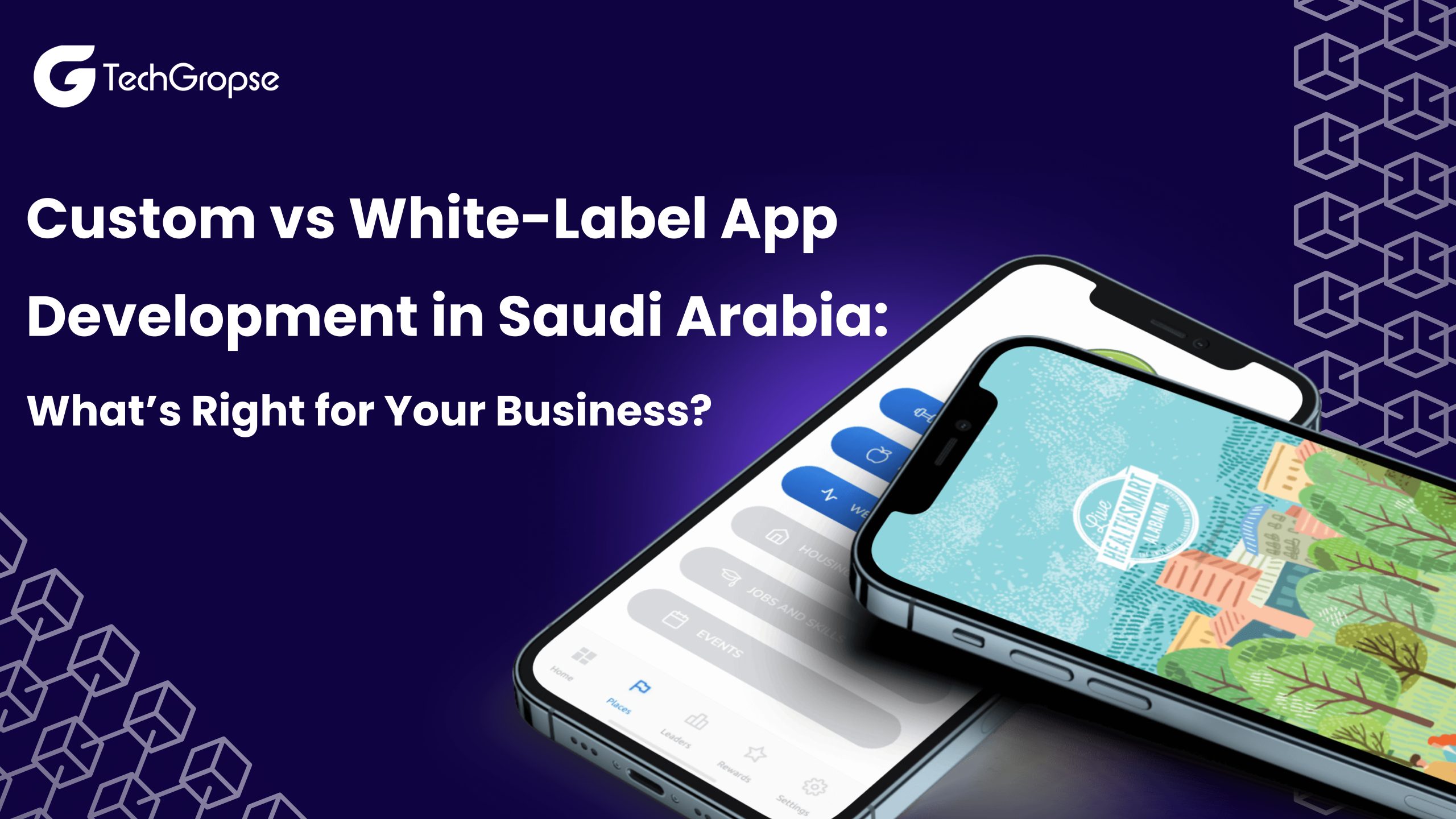“Your Journey to Home Sweet Home Starts Here!”
Are you tired of the opacity in property listings? You deserve clarity and confidence when making one of life’s most significant decisions. By building an app like Magicbricks, you can provide this transparency to your users, potentially revolutionizing the real estate market.
Let’s start
Imagine a world where you can find your dream home with just a few clicks on your smartphone. House hunting has become easier than ever before, and it is all because of the “Magic of Magickbrics.”
These apps provide valuable tools for home seekers to make informed decisions when searching for a property. With Magicbricks, users can easily explore available properties, compare prices, and check the locality information.
It has made the house searching process more convenient and hassle-free. Say goodbye to endless scrolling through listings and endless phone calls to agents.
Join us as we explore the intricacies of real estate app development and learn how to build an app like Magicbricks that caters to the needs of property buyers and sellers alike.
Market Statics of Real Estate App Development 2024
A new report says that 75% of people between the ages of 24 and 42 use their mobile phones to look for houses to buy.
With the increasing number of people using their phones to find homes, the real estate app market is ripe with opportunities. This guide will equip you with the knowledge and tools to tap into this potential and build a successful app like Magicbricks.
Not only are people looking for homes on their phones, but even crucial real estate industry leaders are starting to see the benefits of technology.
A report from Deloitte shows that 60% of these leaders think using technology can change how they do business.
Overview of Magicbricks Platform
Magicbricks is a top online real estate platform in India. It offers comprehensive services for property buyers, sellers, and renters.
Established in 2006, it has emerged as a trusted name in the Indian real estate market, providing a one-stop solution for all property-related needs.
The platform hosts a vast database of residential and commercial properties, including apartments, villas, independent houses, office spaces, and retail outlets.
Users can easily search for properties based on their preferences, such as location, budget, size, amenities, etc.
Looking to Build an App Like Magicbricks? Here’s How!

If you want to enter the real estate market with a similar app, this guide provides a roadmap for the development process.
Planning to build an app like Magicbricks, a real estate app development company, requires careful planning, execution, and ongoing refinement to meet users’ and the real estate market’s evolving needs.
Step 1. Understanding User Needs: The Foundation for Success
Before diving into technical aspects, it is crucial to understand your target audience. Here are a few questions you should consider:
- Who are your ideal users? Are they property seekers (buyers or renters), property owners (sellers or landlords), or real estate agents?
- What are their pain points? What challenges do they face in the current real estate search process?
- What features would add value to their experience? Consider functionalities like advanced search filters, virtual tours, or integrated communication tools.
By putting the user at the center of your development process, you can build real estate app that addresses their specific problems and provides a seamless experience. This user-centric approach is key to the success of your app.
Step 2. Core Features of a Real Estate App
1. User Management:
- Registration and Login: Users can create accounts using email, social media logins, or phone numbers.
- User Profiles: Enable users to create profiles with preferences and search filters. Property owners can create profiles to showcase their listings.
2. Property Listing Management:
- Listing Creation: Property owners or agents should be able to create detailed listings with photos, videos, virtual tours (optional), property descriptions, location details, and critical features.
- Search Functionality: Implement a robust search engine with filters for location, price range, property type (apartments, villas, commercial spaces), amenities, and keywords.
- Sorting Options: Users can sort search results by price, area, date listed, or other relevant criteria.
3. User Interaction and Communication:
- Messaging System: Facilitate secure in-app communication between property seekers and owners/agents for inquiries and negotiations.
- Lead Management: Enable agents to manage leads generated through the app, track communication history, and schedule appointments.
- Ratings and Reviews: Allow users to leave ratings and reviews for properties and agents, fostering trust and transparency.
4. Additional Features for Enhanced Value:
- Mortgage Calculators: Integrate a mortgage calculator to help users estimate monthly loan payments based on property price and interest rates.
- Neighbourhood Insights: This feature gives users insights into specific localities, including demographics, amenities, and nearby points of interest.
- Push Notifications: Send users personalised notifications about new listings matching their search criteria or updates on their saved properties.
5. Admin Panel for Management:
- Content Management System (CMS): Allow administrators to manage app content, including location data, property categories, and user-generated content moderation.
- Data Analytics: Provide insights into user behaviour, property listing views, and app usage patterns to optimise the user experience and identify marketing opportunities.
- Subscription Management: If your app offers premium features like listing prioritisation or lead generation tools, have a secure system for managing subscriptions and payments.
Step 3. Technical Considerations for App Development
1. Choosing the Right Platform
- Native App Development (Android and iOS): Offers optimal performance, user experience, and access to device-specific features. However, each platform requires separate Magicbricks app development.
- Cross-Platform Development: Hire mobile app developers who know Frameworks like React Native or Flutter. These frameworks allow the building a single codebase that can be deployed on Android and iOS. While it can be cost-effective, it may have limitations in performance and access to native features.
2. Backend Development:
- Database: A secure and scalable database is essential to store user data, property listings, and app functionality.
- API Integration: Consider integrating with mapping services like Google Maps for location display and property search by proximity.
- Security: Implement robust security measures to protect user data, including encryption for sensitive information and secure authentication protocols.
If you want to target a broader audience with a single codebase, cross-platform frameworks like Xamarin or Ionic are good choices.
Step 4. UI and UX Design
- Intuitive Interface: Hire dedicated developers who design a user-friendly interface that is easy to navigate and visually appealing.
- High-Quality Images and Videos: High-resolution photos and videos of properties are crucial for engaging users and effectively showcasing listings.
- Responsive Design: Ensure your app looks and functions flawlessly across different screen sizes and devices.
- Map Magic: A seamless map integration allows users to browse properties visually and get a feel for the surrounding areas.
Step 5. Development and Testing
-
Agile development methodology: Break down the development process into sprints for faster iteration and testing.
-
Rigorous testing: Ensure a smooth user experience across different devices and platforms.
Step 6. Deployment and Maintenance
-
App Store Optimisation (ASO): Optimize your app listing for relevant keywords to improve discoverability.
-
Ongoing maintenance: Continuously update the app with new features, bug fixes, and security patches.
Step 7. Monetisation Strategies
- Listing Fees: Charge property owners or agents a fee to list properties on your app. It can be tiered based on listing duration, priority placement, or additional features.
- Subscription Model: Offer subscription plans for users with premium features like advanced search
How Much Does it Cost to Build an App Like Magicbricks
Have you ever thought about how Magicbricks works its magic? How much money does it take to make a real estate app and website that can keep up in this fast industry?
It’s pretty complicated, with lots of different things to consider. But on average, real estate app development costs between $5,000 and $25,000 or more.
| Development Cost Components | Estimated Cost |
| Project Planning and Research | $5,000 – $10,000 |
| UI/UX Design | $10,000 – $20,000 |
| Frontend Development | $20,000 – $40,000 |
| Backend Development | $25,000 – $50,000 |
| Database Setup | $5,000 – $10,000 |
| Third-Party Integrations | $10,000 – $20,000 |
| Testing and Quality Assurance | $10,000 – $20,000 |
| Deployment and Launch | $5,000 – $10,000 |
| Maintenance and Updates (Yearly) | 15-20% of Development Cost |
Total Estimated mobile app development cost: $90,000 – $180,000
Note: The Magicbricks app development cost may vary depending on features, complexity, platform (iOS/Android), development team rates, and location.
How Can You Use Real Estate App Like Magicbricks?

A real estate app like Magicbricks is a comprehensive platform designed to simplify property transactions and empower users with valuable insights and resources.
Here are key points of how it works:
1. User Registration
The app begins by allowing users to create accounts through email, social media, or phone number verification. This registration process enables personalised experiences and access to specific features.
2. Property Search
Users can browse a vast database of properties listed for sale or rent. They can refine their search based on location, price range, property type, amenities, and other relevant criteria. Advanced search filters help users find properties that align with their preferences.
3. Property Listings
Detailed property listings provide comprehensive information about each listing, including property photos, descriptions, specifications, pricing, contact details of the seller/agent, and virtual tours where available. Users can save listings, add them to favourites, or share them with others.
4. Interactive Maps
Integrated maps allow users to visualise property locations and nearby amenities such as schools, hospitals, restaurants, and transportation hubs. This feature helps users assess the neighbourhood’s suitability and make informed decisions.
5. Inquiry and Communication
The app allows users to inquire about properties or schedule viewings directly. Real-time chat or messaging features facilitate communication between buyers, sellers, and agents, enabling swift responses to queries and negotiations.
6. Property Management
The app offers property owners and agents tools to manage listings, update property details, upload new photos, track inquiries, and schedule appointments. This feature streamlines showcasing properties and connecting with potential buyers or tenants.
7. Financial Tools
Some on demand app development company integrate financial calculators to help users estimate mortgage payments, affordability, and return on investment. These tools assist buyers in assessing their financial readiness and making informed decisions about property purchases.
8. Notifications and Alerts
The app sends users notifications and alerts based on their saved searches, preferences, and recent activity. These notifications inform users about new listings, price changes, upcoming open houses, and other relevant updates.
9. Reviews and Ratings
Users can leave reviews and ratings for properties, agents, and the app experience. This feedback mechanism helps maintain transparency and trust within the community while enabling continuous platform improvement.
10. Secure Transactions
The app ensures secure transactions by implementing encryption, secure payment gateways, and compliance with legal regulations. Users can safely conduct transactions, make payments, and sign agreements within the app, minimising the risk of fraud or unauthorised access.
Revenue Insights: How Does Magicbricks Earn?

Magicbricks earns revenue through various monetisation channels, leveraging its position as India’s leading real estate platform.
Here are some key ways Magicbricks generates income:
1. Listing Fees
Real estate agents, developers, and individuals looking to sell or rent properties can pay a fee to list them on Magicbricks.
These listing fees vary based on property type, location, and duration. Premium listings or featured placements may command higher fees.
2. Advertisement Revenue
Magicbricks offers advertising space on its platform for real estate businesses, such as developers, builders, brokers, and financial institutions.
These entities can promote their projects, services, or mortgage products to Magicbricks’ vast user base through banner ads, sponsored listings, and targeted campaigns.
Magicbricks generates revenue by charging advertisers for these promotional opportunities.
3. Lead Generation Services
Magicbricks provides lead generation services to real estate agents. and developers by connecting them with potential buyers interested in specific properties.
Agents and developers pay a fee for each qualified lead generated through the platform.
Magicbricks uses various data-driven techniques and algorithms to match leads with relevant properties, maximising clients’ conversion rates.
4. Subscription Models
Magicbricks may offer premium subscription plans to users, providing access to advanced features and exclusive content.
These subscription models typically target real estate professionals and offer additional property management, analytics, and marketing tools.
Subscribers pay a recurring fee for access to these premium services, which contributes to Magicbricks’ recurring revenue stream.
5. Value-Added Services
In addition to its core offerings, Magicbricks may offer value-added services such as property verification, documentation assistance, legal advice, and home loan assistance.
Users pay a fee for these services, which enhance their overall experience and streamline the property transaction process.
6. Partnerships and Collaborations
Magicbricks may enter into partnerships or collaborations with real estate app development company, including self-employed mortgage lenders, insurance providers, home service providers, and relocation agencies.
Through these partnerships, Magicbricks may receive referral fees or commissions for facilitating transactions or generating leads for its partners.
List of Popular Apps Like Magicbricks
A mobile app development company has built some successful real estate applications. These popular real estate apps, similar to Magicbricks, have an approximate number of downloads, active users, and critical features.
| Real Estate App | No. of Downloads (Approx.) | No. of Active Users (Approx.) | Features |
| 99acres | 10,000,000+ | 2,000,000+ | Property listings, search filters, financial tools, legal assistance |
| Housing.com | 5,000,000+ | 1,500,000+ | Verified listings, map-based search, virtual tours, buying/selling/renting services |
| CommonFloor | 1,000,000+ | 500,000+ | Property listings, community insights, home services |
| Nestoria | Not Available | Not Available | Property search engine, aggregates listings from various sources, save searches, receive alerts |
| Zillow | 50,000,000+ | 20,000,000+ | Property listings, home values, rental estimates, tools for buyers/sellers/renters |
| Trulia | 10,000,000+ | 5,000,000+ | Property listings, neighbourhood insights, mortgage affordability tools, local market trends |
| Realtor.com | 10,000,000+ | 3,000,000+ | Property listings, home values, market trends, resources for finding agents and mortgage lenders |
| Redfin | 5,000,000+ | 2,000,000+ | Property listings, virtual tours, tools for scheduling tours, making offers, closing transactions |
How Can We Help You to Build an App Like Magicbricks?
TechGropse is here to make building an app like Magicbricks easy. We are experts in app development and know the real estate world inside and out. You can easily hire Android app developers at affordable prices.
With their help, you will breeze through every step of creating your app. From brainstorming ideas and checking out the market to designing the app and making it work perfectly, TechGropse has you covered.
We are a top Android app development company that uses the latest tech and intelligent ideas to make your app fantastic. We will make it happen if you want incredible search options, lots of property listings, or maps that show everything clearly.
Plus, TechGropse ensures your app can manage many users without any glitches.
So, if you dream of making an excellent real estate app like Magicbricks, TechGropse is the team you need. We will turn your idea into a fantastic app that everyone will love!
FAQ: How Do You Build an App Like Magicbricks?
1. How much time does it take to build an app like Magicbricks?
The time required to build an app like Magicbricks depends on various factors, such as the complexity of features, design requirements, and development resources. Developing a fully functional app takes a few months to a year, including planning, development, testing, and deployment.
2. What are the essential features to include to build an app like Magicbricks?
Essential features for an app like Magicbricks include user-friendly property search with filters and detailed property listings with images and descriptions—additionally, map integration for location-based search user profiles for personalised experiences.
3. How can I ensure the success of an app like Magicbricks?
To ensure the success of your app like Magicbricks, focus on user experience, market research, and continuous improvement. Gather user feedback and iterate on features accordingly. Invest in marketing and promotion to reach your target audience effectively.










